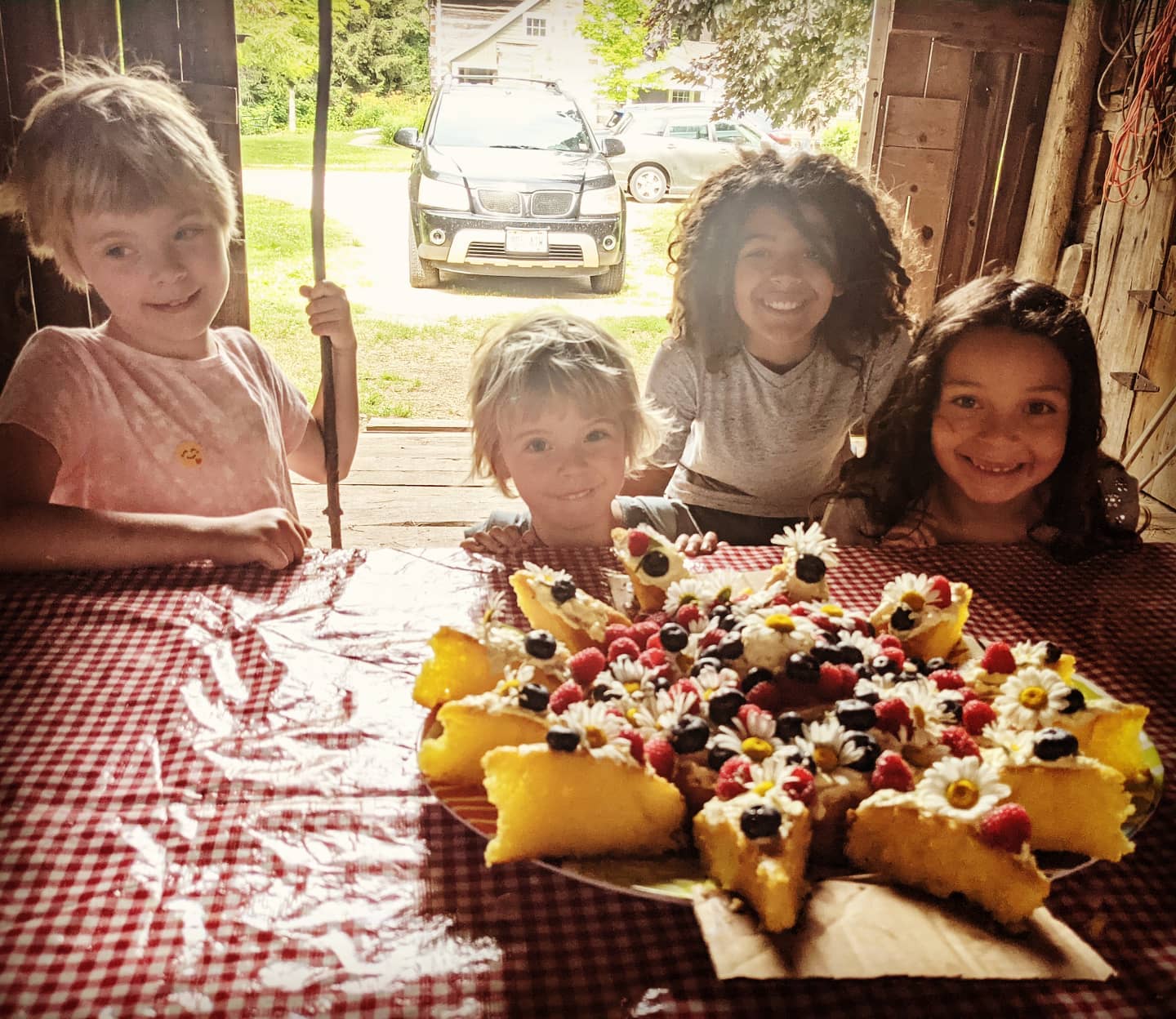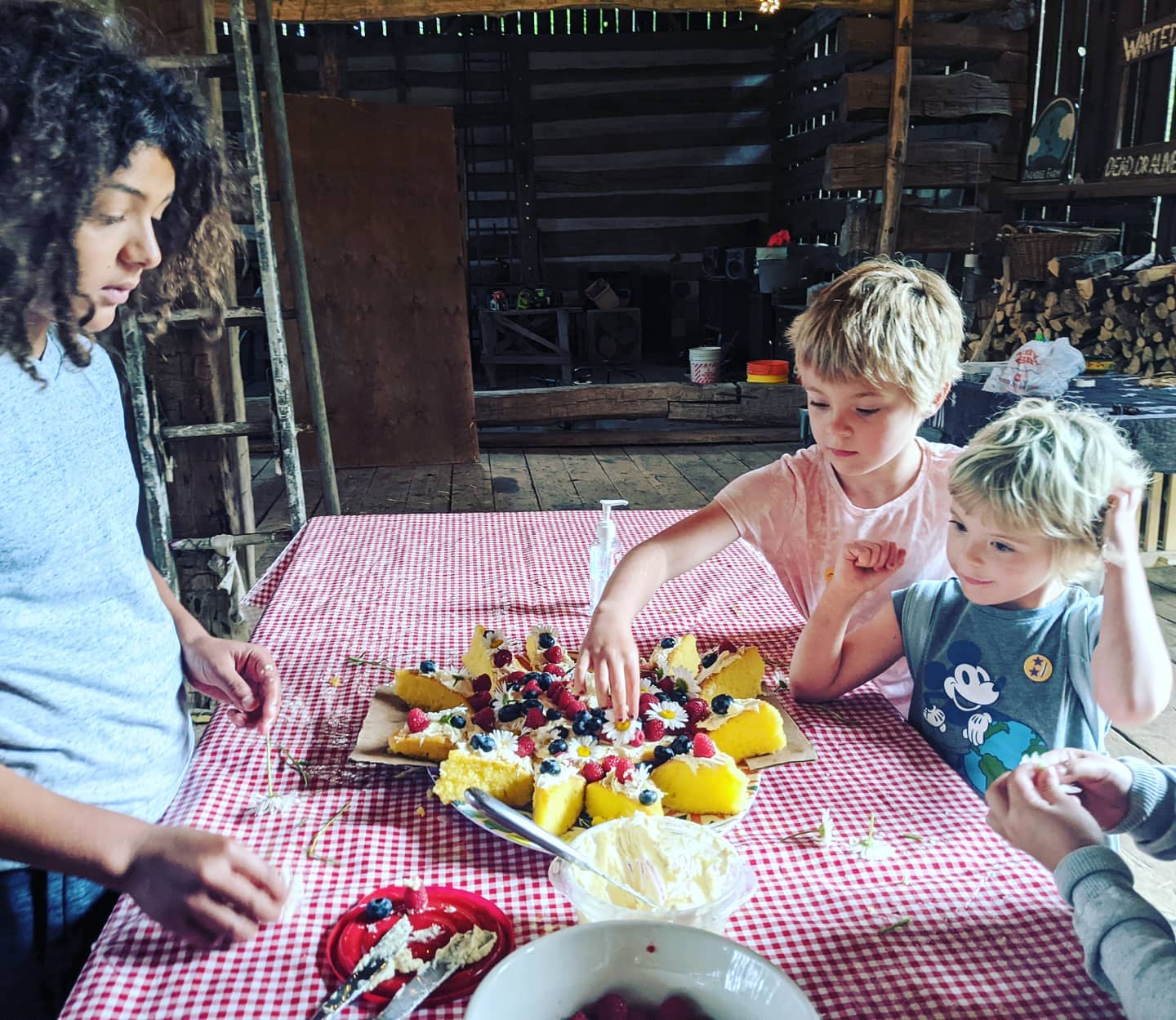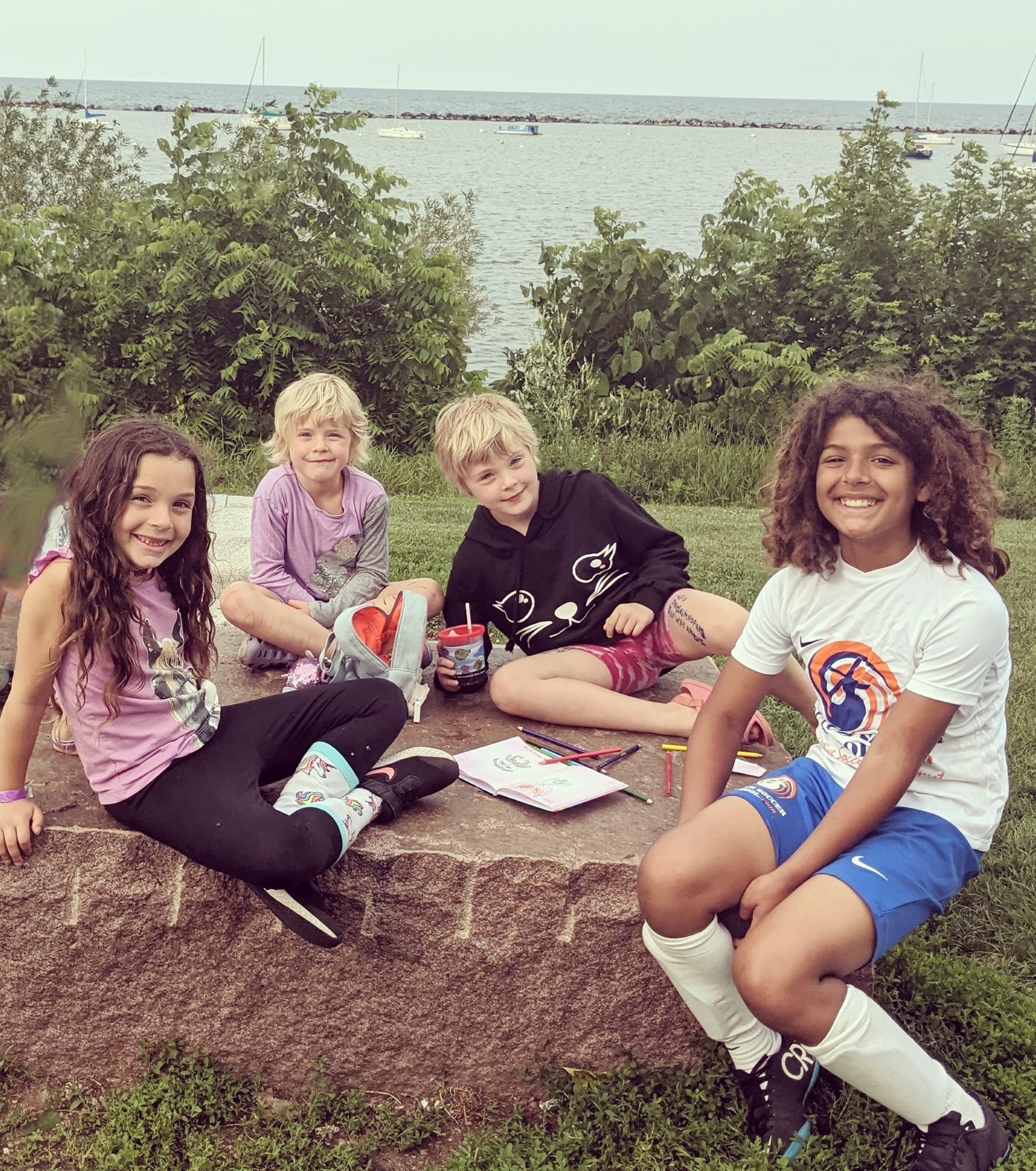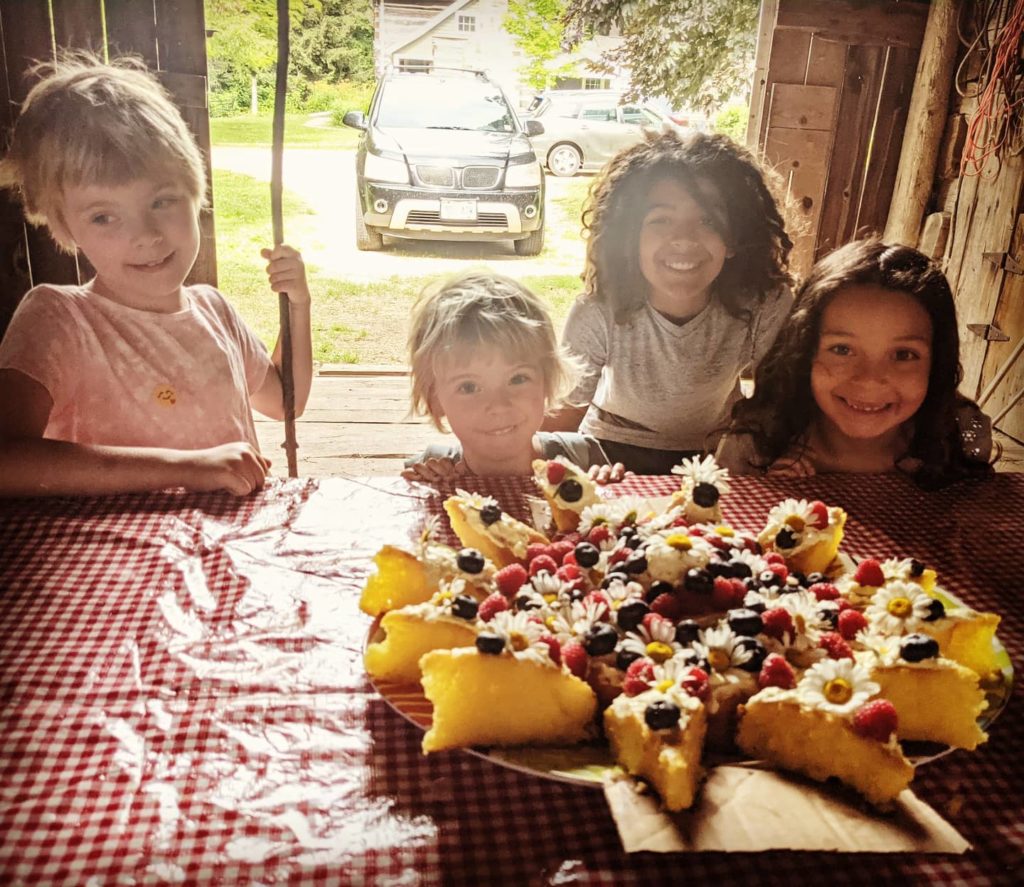July 25, 2021
The only way to have a friend is to be one. — Ralph Waldo Emerson

Can you remember a special friend from childhood?
I was fortunate enough to have a few childhood friends who waited for me by the school gates in the morning, and played long hours with me during the summer.
I also remember the fleeting, but still very special, friendships made on family vacations. The kind of fast friend made in the motel swimming pool, or whose family was renting the cabin next door. I still remember a girl I met in the Ozarks when I was about 8 years old – I was kind of shy, and she came right up to me and asked me to be her friend. We were thick as thieves for the entire week our families vacationed next to each other, swimming, chasing fireflies, and staying up late around the campfire roasting marshmallows.

After a year of Covid separation, I am so delighted to watch children beginning to develop these easy kinds of friendships again, without the hindrance of physical distancing or masks. Two sweet families in our Parent-Child program at Paradise Farm met each other for the first time in our summer program recently, and the kids instantly hit it off. After one shared activity of decorating a cake, the two pairs of siblings were walking through the woods singing together at top volume! As I observed the kids forming their fast friendship, as if making up for lost time, I was so impressed by their instant acceptance of each other. The awkward, slow social dance we adults do when meeting each other for the first time – making small talk, trying to assess whether this new person shares our same values and interests, not being too forward or off-putting, while at the same time exuding enough warmth and interest that the other person finds us worthy of engagement – can feel exhausting and contrived. None of this seems to matter for kids. “Do you want to play?” is often all it takes.

Making Friends is a Learned Skill
As easy as it looks for some children to make new friends, learning how to keep and make new friends actually involves a number of skills young children need to learn and develop. For some, these skills come very naturally, and they easily move to and from friendship groups, sharing their experiences and opening up to new people. For others, the world of friendships can be much harder to navigate. One of things that worries a parent the most is when their child has a hard time making friends.
Here are a few things I have observed that help kids learn the skills to make friends:
- Help your child to develop positive social skills from an early age by guiding them along the learning curve of getting along with other humans. Sometimes this involves a gentle suggestion of a thing to say or do, other times sitting back and observing to see if they can work it out. Over time they learn to take others people’s feelings into account and become more skilled in the social arts. A colleague of mine says, “Kids need to learn they are special, and also that they are no more special than anyone else.” It seems that children who have learned this lesson have the easiest time making friends. It involves hundreds, no, thousands of small interactions at home to learn and practice the social arts of sharing, listening and valuing others.
- Demonstrate to your child how friendships work by letting them see how you behave with your friends, and how you form friendships with new people. Do you step out of your comfort zone to greet someone you don’t know? Do you take the time to reach out to friends or family members who need a helping hand? Your children are watching, and they will learn these skills by observing you.
Once your child is of school age, here are some additional ways to help them form friendships:
- Help your child find other children with similar interests, perhaps through a summer activity or an after-school club – children often choose friends based on similar and shared hobbies. When you see a budding friendship forming, create some time and space for that friendship to flourish.
- If your child is feeling shy or anxious in a social setting, offer them some icebreakers to start conversations with others and role-play what they may say to someone.
- Help them to find new areas of interest or help to boost their confidence in everyday situations. A child who is confident has an easier time making friends with others.
My husband and I recently met up with an acquaintance we haven’t seen in some time at an outdoor concert in our community. She expressed how anxious she felt at being in a public space unmasked, after more than a year of working hard to maintain distance from others. Her two little grandchildren had no such qualms, as they gleefully ran around the grassy glen, in and out of people’s space, tossing a Frisbee they received from the local bank employees at a nearby booth. As their Frisbee landed on strangers’ picnic blankets or in their ice cream, there wasn’t a single adult who wasn’t smiling at these young lads by the time the concert was over.
It may take us a bit of time after 2020 to regain our social skills. Perhaps we can just let the children guide us.

Mary O’Connell, editor of the Living Arts Blog
